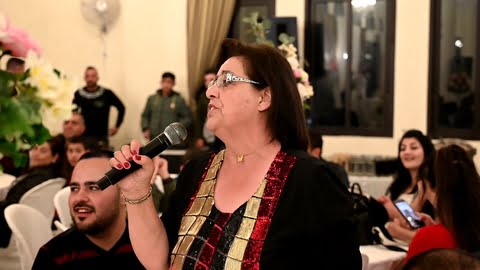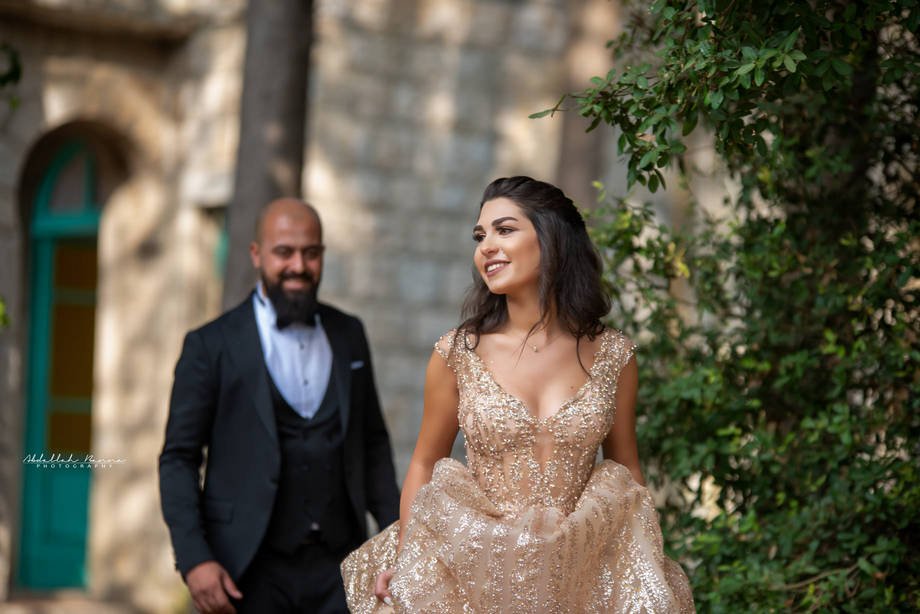Zaghrouta: Celebrating Lebanese Weddings with Joy and Tradition
Lebanese weddings are a vibrant tapestry of traditions, rituals, and celebrations. Among the most distinctive and joyous customs is the “zaghrouta,” an exuberant vocal expression of happiness. For those unfamiliar with this tradition, zaghrouta is a high-pitched, ululating sound made predominantly by women in the Arab world to convey joy, especially during significant celebrations like weddings.
What is Zaghrouta?
Zaghrouta, often heard as “leleleleleesh,” is more than just a sound; it’s a powerful cultural symbol. It’s an expression of collective happiness, support, and excitement for the couple embarking on their new life together. This unique tradition is an integral part of Lebanese weddings, adding to the festive atmosphere and showcasing the deep-rooted cultural heritage of the region.

Who Should Say the Zaghrouta in a Lebanese Wedding?
Traditionally, the responsibility of performing the zaghrouta falls on the groom’s family, particularly his aunts or sisters. This stems from the old belief that the bride’s family would be too sad to see her leave, as she transitions from her parental home to her new life with her husband. Hence, it was customary for the groom’s relatives to take on the joyful task of performing the zaghrouta, symbolizing their welcome and celebration of the bride into their family.
However, contemporary practices have evolved. Nowadays, the zaghrouta can be performed by anyone capable of producing the sound, including the bride’s friends and other wedding guests. This shift ensures that the celebration is inclusive, with everyone participating in the joy of the couple’s union. The key is to ensure that the moment remains festive and harmonious, avoiding any playful “zaghrouta fight” between the two sides of the family.
Poems for Zaghrouta Inspiration
To add a personal touch to the zaghrouta, it’s common to accompany it with poetic verses. Here are a few traditional poems that can inspire you:
ثبت قلبي وما قصّر
ونسد جرح الهوى من بعد ما نثر
الحمدالله على جبرة خواطركن
صرلي كتير على هل يوم بتحسّر
Translation:
Steadfast is my heart, it never faltered
Mending love’s wounds after they were scattered
Grateful for the healing of your spirits
I’ve longed for this day, with yearning unfaltered
شفت العروس مزيني متل شروق الشمس وغيابها
ثمنها يتسوى كنوز من الذهب
والسرّ للبطن الحملها وجابها
Translation:
I saw the bride, adorned like the sunrise and its setting
Her worth is equal to treasures of gold
The secret lies in the womb that carried and brought her forth
آويها يا عروس كوني على حذر
جايين أهل العريس متل زخ المطر
آويها جايين من كبيرهم لصغيرهم
جايين ينقلو الشمس لحد القمر
Translation:
Oh bride, be cautious and aware
The groom’s family arrives like a rainfall
They come from the eldest to the youngest
Bringing the sun to the moon
Conclusion
As we look forward to weddings in 2024, it’s clear that the tradition of zaghrouta continues to thrive, adapting to modern sensibilities while preserving its cultural essence. If you’re attending a Lebanese wedding soon, prepare yourself for the spirited “Lelelelelesh.” It may seem challenging at first, but with a bit of practice, you’ll be able to join in this joyful celebration, contributing to the vibrant tapestry of love and happiness.
So, start practicing your zaghrouta today and get ready to celebrate the couple’s special day with a sound that resonates with centuries of tradition and joy.




